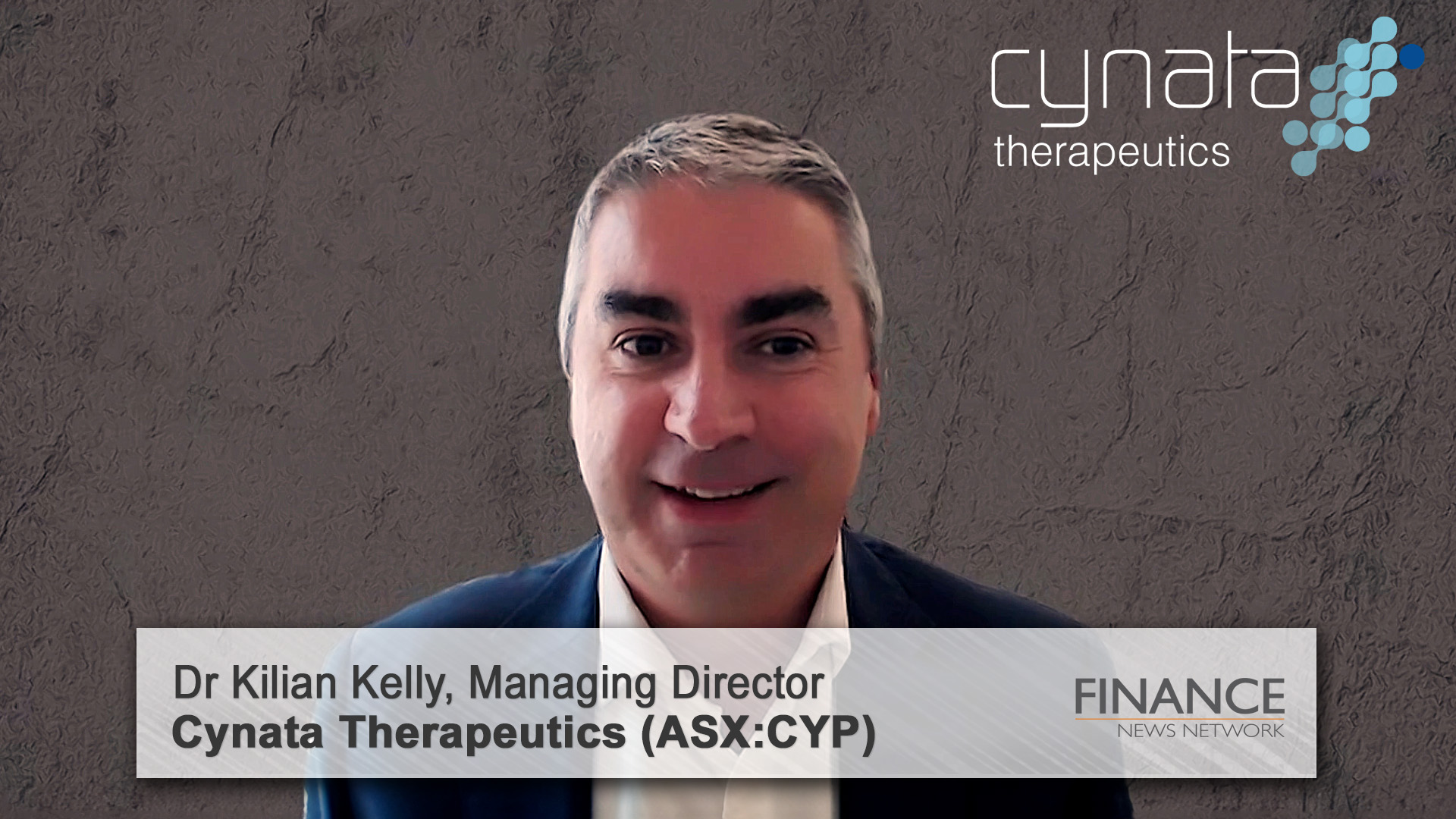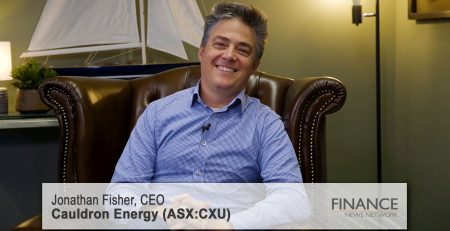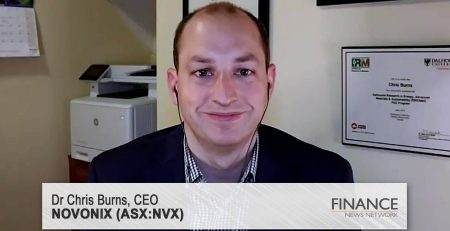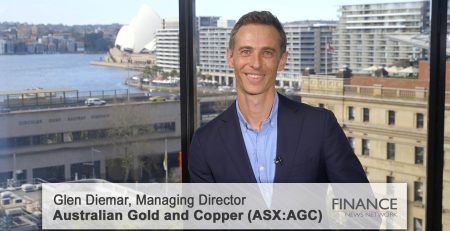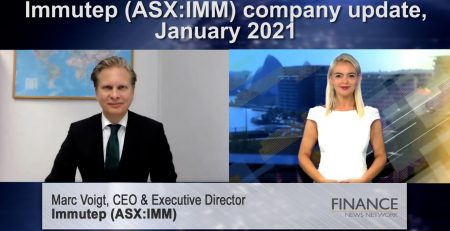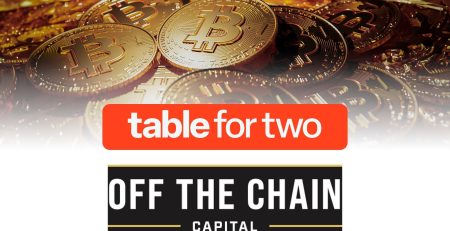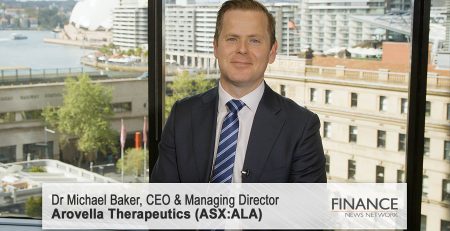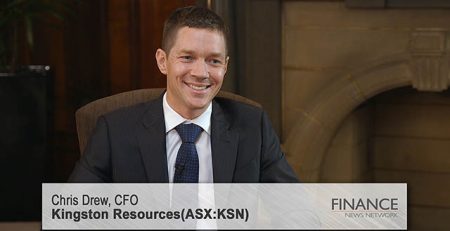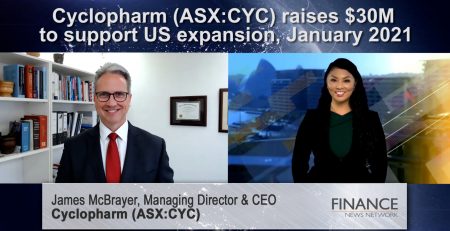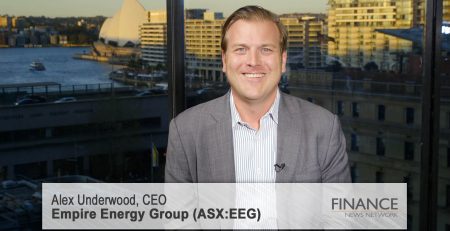Cynata Therapeutics’ breakthrough in regenerative medicine
Peter Milios: I am Peter Milios from the Finance News Network, and today I am talking with Cynata Therapeutics. Cynata is a clinical stage stem cell and regenerative medicine company. Their ASX code is CYP and they have a market cap of around $35 million. Here to tell us more is Cynata's CEO and the Managing Director, Kilian Kelly. Kilian, welcome to the network.
Kilian Kelly: Thank you and nice to be here, Peter.
Peter Milios: First off, could you provide some background of Cynata for people who might not know or be familiar with the company?
Kilian Kelly: Yeah. So Cynata is a biotechnology company based in Melbourne. We've been operating for a bit over 10 years. We're focused on the development of stem cell and regenerative medicine products. So really what that means is we're making novel therapies for various serious medical disorders that have unmet needs at the moment. And we've got a total of four active clinical trial programs at the moment in graft versus host disease, diabetic foot ulcers, osteoarthritis and kidney transplantation. So we've got quite a wide and broad portfolio. And those trials are at various stages, but there's really a lot of activity happening right now.
Peter Milios: So what does the competitive landscape look like for Cynata's therapies and what makes Cynata unique overall?
Kilian Kelly: Yeah. So look, the field of stem cells and regenerative medicine has really exploded over the last, say 10 years or thereabout. And there's a lot of companies operating in this space as you would expect, because there's a huge amount of potential from these kinds of therapies. But what really sets Cynata apart is the way that we make our stem cell products. And so a conventional way of making these cells and the way that pretty much everybody else does it, is that they get donations from donors who donate their bone marrow or fat or placenta, for example, various tissues. And they then isolate the stem cells of interest and turn those into therapeutic products. And that works to an extent but there's some fundamental challenges with it. And in particular, you get a lot of variability from one donor to another. And there's also a limit to how many doses you can produce from any one donation.
And that's because the cells that you isolate in that way, they don't have the ability to just continuously grow in a lab, which is really how they make these products into a scalable technology. And what we do is a completely different sort of a process. It's based on a type of stem cell called an induced pluripotent stem cell. And what that means is really that these cells have the ability to reproduce themselves in a lab to an effectively limitless degree, and you can then turn those cells into the type of cell that you want to use for therapy. So what that means is we can make an essentially limitless number of doses from one donor one time. So we don't have to go back and get new donors, and we don't have that problem with variability or with the limitation in the number of doses that we can produce from one donor. So it really completely allows us to make this in a consistent and scalable way well into the future.
Peter Milios: Moving on to recent news, congratulations on the appointment of your first chief business officer, Matthias Kroll. What can you tell us about Matthias role, and why now and what will Matthias bring to Cynata?
Kilian Kelly: Yeah, so we've really created this role with an eye on the next stage of the company's growth. So now we've got four clinical programs ongoing. As I said, we're generating a lot of very exciting data and we have a partnership driven business model. So we're seeking to partner with larger companies, big pharmaceutical companies and so on who have the wherewithal to take these products right through to commercialization. And the role is really aimed at focusing on that and building those partnerships. And Matthias himself has a fantastic track record in that space. He's worked in the industry for over 25 years. He's done some huge deals, many of which involve smaller companies with a novelty technology like ours and partnering that with bigger companies. So I think it's a great appointment for the company and it really positioned us to help move to that next stage and start putting some of these partnerships in place.
Peter Milios: You recently released promising results in a trial for treatment of diabetic foot ulcer. Could you talk us through what the condition is, what the key findings from the child were and what do these results mean for people with DFU?
Kilian Kelly: Yeah, so diabetic foot ulcers are a huge problem and it's becoming a growing problem. And really it is one of various complications that happens to people with chronic diabetes. And of course that is becoming a more and more common condition, especially in the western world. And what happens is because the diabetes affects the blood flow in their lower limbs, they tend to get these wounds that occur and those wounds then just don't heal. So that's a huge problem. It can lead to obviously pain and discomfort, but then it can lead to serious infections and often even results in amputation of the foot or the lower limb. So it's an enormous problem, and current treatments just don't work very well. So the product that we have is a novel dressing, which is seeded with the MSC stem cells and applied to the wound. And this trial that we've got ongoing, it's a randomized trial where patients receive either that novel stem cell dressing or just standard of care dressings.
We released data very recently in the first 16 patients in this trial, so there's eight in each group and they'd reached the 10-week follow-up. And what we saw was that in the active stem cell group, we saw a median wound healing, a reduction in the size of the wounds of almost 90% compared to just over 50% in the control. So that's obviously a huge improvement. And what it shows is those patients are very close to being completely healed, which is of course what we're trying to do. So if we can show that sort of an effect with the full trial and obviously then continue through further development, we believe that we've really got a product that has huge potential in this setting. And what that could mean is really that these patients, instead of having these chronic wounds that just don't go away and just end up causing further problems, that perhaps that they could then have a treatment that's actually able to resolve these wounds and let them get back to living a normal life. So it's a really exciting program.
Peter Milios: Yeah, it does sound very positive. Just on that note, when is the trial due for completion and is it anticipated the patch will be available broadly to people with DFU?
Kilian Kelly: Yeah, so this trial is very close to finishing recruitment. And we hope that that will happen very imminently, perhaps within the next month or two. And then there's a six-month follow-up of all the patients. So we should have final results of that trial hopefully late this calendar year. And in terms of making the trial more broadly available, what we'd expect is that there'll have to be a larger clinical trial conducted first. And then ultimately, of course, we want get this product on the market and widely available. And again, that's really where our partnership driven business model comes in. We're already talking to various companies who have an interest in partnering with us to help take this product through to market.
Peter Milios: And moving on to another indication, you announced earlier this month that you treated the first patient for acute graft versus host disease. Could you share more details about this please?
Kilian Kelly: Yeah, so graft versus host disease is a rare condition thankfully because it's a truly horrible condition. It occurs in patients who've received a bone marrow transplant or a similar procedure. And those procedures are used to treat certain types of blood cancers. And the transplant can work well, but graft versus host disease often occurs and it basically involves immune cells in that transplant attacking the recipient as if the recipient's body is foreign. And it has really awful symptoms and it unfortunately often leads to death. So in patients who don't respond to steroids which is the standard treatment, something like 80% of them won't survive for about two years normally. We conducted a phase one trial where we got really, really exciting results. We saw a response in 13 out of 15 patients treated with our cells and a complete response in eight out of 15. And we've now started a phase two trial, which is a global trial in Australia, Europe, and the US. And just very recently we recruited the first patient in that trial, which of course is a very exciting milestone in any project. And we're hoping to complete recruitment of that trial by the end of this calendar year. And if we achieve that, we should have results around about the second half of next year. So really not that long until we would have the second phase of results in this program.
Peter Milios: And you touched on it briefly, and when is further trial recruitment likely?
Kilian Kelly: We've got multiple sites open for recruitment right now. Now unfortunately, this is a rare condition so even the major clinical centers don't see patients with this disease every day of the week. Well, I say unfortunately, it's actually fortunate for patients but it makes it somewhat slow to recruit the patients. But we are aiming to get more than 30 clinical sites open in this trial, and we're really getting that critical mass going now. So we're expecting recruitment to really kick on from here, and we'll be seeing new patients coming in on a regular basis.
Peter Milios: You closed your osteoarthritis trial just before Christmas, when will the results be made to the public?
Kilian Kelly: Yeah, so that was a really huge trial. 320 patients were recruited, and the last of them in November. We're looking to show a disease modifying effect in this trial, which means that not just that the cells improve pain and inflammation, but they also actually change the progress of the disease and hopefully stop further deterioration. And so because of that, we have to follow the patients for two years. So the last patient visit will be in November next year, and then we'll have results within a few months of that. So likely early 2026 for the results of that one.
Peter Milios: And could you comment on your kidney transplant trial?
Kilian Kelly: Yeah, so this is a trial that was approved late last yea and it's just about to start. It's going to take place in the Netherlands in partnership with a major center over there called Leiden University Medical Center. And the idea here is that, as you may know, patients who get a kidney transplant have to take immunosuppressant drugs which stop the transplant being rejected. And they usually have to take those drugs for the rest of their lives, and while they work well, the problem is they're very toxic. They cause an increased rate of infection, increased rate of cancer, and they can actually damage the kidneys as well which is of course very unfortunate in these patients. So what we're seeking to do is to use our MSC stem cell product to allow the dose of those immunosuppressant drugs to be dramatically reduced or potentially withdrawn completely. And if we can show that we can do that without causing an increase in the rejection of the transplant, it could really kind of transform the way that those patients are managed.
Peter Milios: Kilian Kelly, thank you for your time today. And we'll be watching the company's progress with interest.
Kilian Kelly: Thank you very much.
Ends.
Copyright 2024 – Finance News Network
Source: Finance News Network

